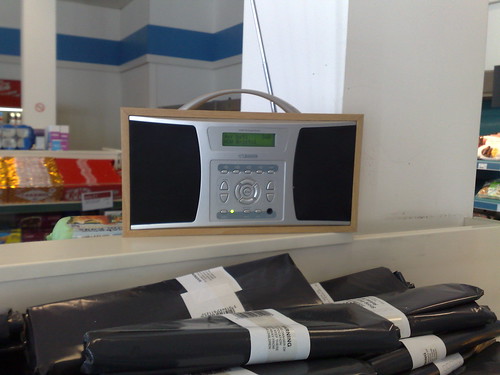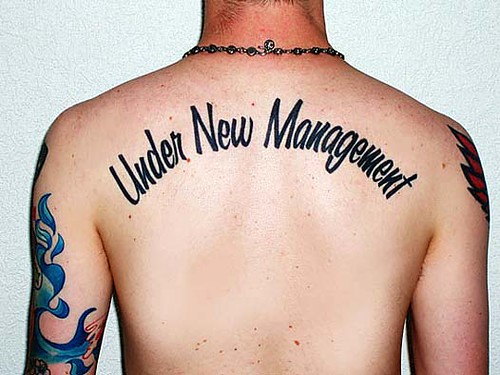
It’s been a difficult time for radio lately, and for digital radio doubly so. Since Fru Hazlitt made her dramatic announcements on 11th February 2008 (the “2/11” for Digital Radio), it’s been a rollercoaster ride, consisting mainly of the scary bit of going down very fast and being apparently about to shoot off the edge of the tracks to certain death.
Radio is contracting. The contraction that means I’ve been saying goodbye to lots of colleagues, and that’s seeing many small analogue services go out of business, is also squeezing what can be done with digital radio. The enthusiasm for digital radio has evaporated, as the costs of an ambitious network build-out became crushingly apparent, and the revenues that should/could be generated from digital haven’t arrived (or been hit by a contracting industry).
Going Digital had a profound effect on the UK Radio Industry. The regulatory policies that set up Digital also shaped the analogue licensing regime, and committed the industry to investments stretching over long periods of times. The Digital Radio envisioned by the people who set it up doesn’t fit well with the plans of the people running the radio industry now.
Something had to change. If you’ve followed this blog, you’ll know that my hope was that some deal could be arranged to make the cost of the network more managable, and that the industry could reorganise itself to plan an inherently more cost-effective plan for digital. Some of that would have involved changing the digital infrastructure to reflect real-life requirements.
And now, nearly 14 months after Fru’s big announcements, and with Global the biggest commercial operator in the industry, things are changing.
The first big change is that Global is doing a deal with Arqiva, the transmission provider, which will see Arqiva take over DigitalOne (the national multiplex operator) and NowDigital (the local multiplex operator). This makes Arqiva a licence holder in their own right, and it’s the first time that multiple DAB multiplex licences will not be held by broadcasters (Ayrshire is already owned by Arqiva, due a regulatory anomaly when EMAP purchased SRH). In return for Arqiva taking over the multiplexes, Global will only pay for the capacity it uses, reducing the costs of transmission. As both DigitalOne and the NowDigital muxes are rather empty, this is a fairly considerable cash saving.
I think Arqiva have got a good deal. They will have to compromise their financials for a period of time, but I suspect that in the mid-term, demand for DAB capacity and infrastructure will grow, if not in the current configuration, then in something than can be met using the infrastructure currently in the D1 and Now networks. They now hold spectrum licences, and that puts them in a good position when it comes to any network replanning. The relationship has been spun on its head.
OFCOM has provided the other big change in the Digital landscape. Their submission to Digital Britain has proposed radical changes to the UK’s regulatory regime, both analogue and digital, in response to the changes that the financial difficulties of the previous year have brought. A lot of the headlines have focussed on the proposals by OFCOM to dramatically change the analogue regulatory regime – reducing the burden of producing local content; allowing the emergence of quasi-national brands that could theoretically have the scale to provide plurality to the BBC; explicit recognition that smaller commercial licences may never be viable financially. This seems to make the assumption that local brands cannot challenge the BBC’s dominance, or may not be able to hold onto the revenue to stay alive.
In my opinion, the most interesting and positive statement is that D2, which failed to get to air as a Single Frequency Network (akin to D1), could come back to life as a series of regional networks with effective national coverage. One suggestion is to blend the existing regional muxes together to create D2. This recognises that a true national SFN isn’t massively commercially valuable, and that’s a great move forward in my opinion.
OFCOM firmly supports continuing with DAB Digital Radio, whilst at the same time acknowledging that other solutions will appear over time. I think the likelyhood of LTE/4G technologies becoming a primary broadcast platform is slim if DAB continues, but there’s no doubt that a converged Broadcast+IP solution is looking increasingly important. This conviction from OFCOM and Government that DAB is staying is very beneficial to Arqiva and the other multiplex operators.
One theme recurrs. In both OFCOM’s and RadioCentre’s submissions to Digital Britain, as well as in the interim report itself, there is talk of using DAB to deliver innovation for radio. That innovation needs to harness the data capabilities of DAB to provide something new, enhanced and reflective of a more complex multi-media world, and more capable multi-media devices.
There has been virtually no innovation, despite 10 years of DAB in the UK.
There’s no lack of ideas for new services, but the barriers to making them happen have been many, high and hard to scale. Broadcasters have to pay for their capacity, and that makes it hard to justify speculatively taking more than the bare minimum to carry stereo audio. The multiplexing equipment is old, and doesn’t reliably support functionality beyond audio (including a number of other very important DAB features). There is a classic chicken-and-egg problem, where manufacturers won’t build receivers to support enhanced functionality because broadcasters won’t commit to services.
That needs to change.
Global Radio launched a series of applications for the Apple iPhone (for which my team deservedly got a SONY Radio Award nomination). These applications feature RadioVIS – a simple visualisation layer for radio. Whilst I’m not going to tell you the stats, I will say that the amount of visuals delivered is considerable and demonstrates a commercial opportunity. But as well as delivering visuals to the iPhone we also publish them as DAB Slideshow into 16kbit/s of 95.8 Capital FM’s DAB stream. (Admittedly, it’s taken 10 months work with Arqiva to get the right interface to the multiplexer).
It won’t take much more work to get the technology right, but launching innovative services needs to start with a commitment to face a digital future and start moving analogue to history. It looks like OFCOM can make that commitment, but will the radio industry follow suit?
